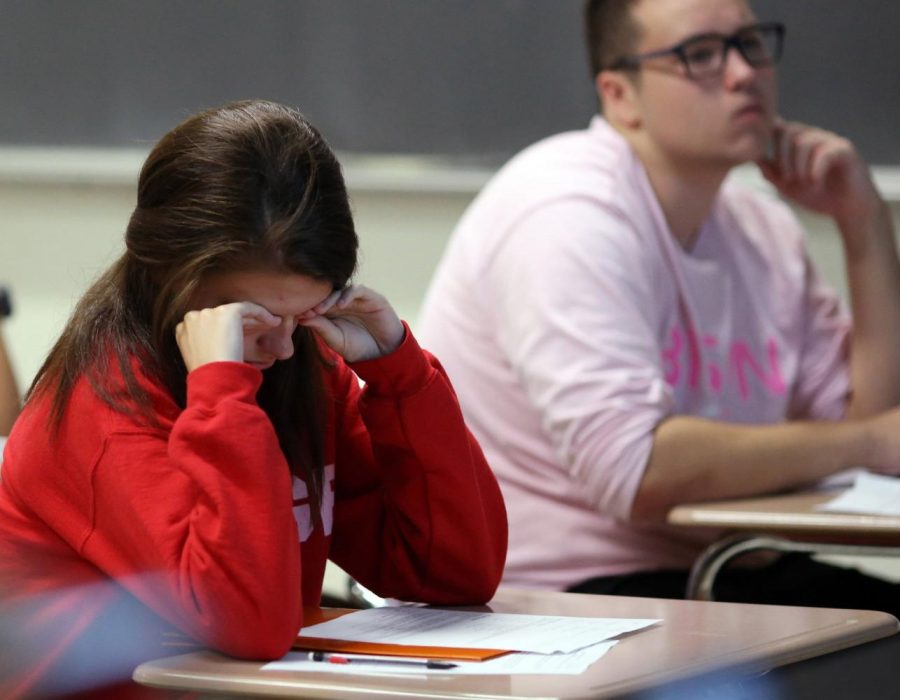How students can get enough sleep
UNI Student Wellness Services pens a guest column emphasizing the importance of getting an adequate amount of sleep, which they say is critical to maintaining a healthy mind and body, especially for students.
Oct 19, 2017
Editor’s note: The following guest column was submitted by UNI Student Wellness Services.
In today’s busy society, it’s common for people to make “being tired” a competition. It is often unintentional, but we can’t help it when someone says “I am so tired, I only got six hours of sleep last night” to reply with, “I know, I only slept for five hours!”
We celebrate exhaustion: pulling all-nighters to complete projects, going out to the bars with friends until close or playing video games into the wee hours of the morning.
We do all this, but we don’t emphasize the importance of sleep.
Getting seven to eight hours of sleep is critical to maintain a healthy mind and body, according to the National Sleep Foundation.
Sleep is a time of restoration for the body, where long-term memories are formed, muscles relax and repair and the quality of your skin and hair are improved.
There are four stages in sleep, the most important of which is rapid eye movement (REM) sleep. This is the stage where dreams occur, and the body is most relaxed. It is the most restorative stage of sleep.
Sleeping well may be easier said than done, so we have provided some tips to help you catch up on some of that valuable sleep that you’ve been missing.
Utilize the following tips to get a better night’s sleep:
• Maintain a consistent sleep schedule – Go to sleep and wake up at the same time every day (even on weekends!).
• Avoid studying or working in bedroom – Your bedroom or residence hall room should be for sleeping and storing your stuff only! Find a place on campus or in your residence hall that can be a designated study space.
• Wash pillowcases and sheets at least once a month – Supports general well-being but also refreshes your whole room.
• If reading, use a real book or e-reader that doesn’t emit blue light – Blue light slows the production of melatonin, the hormone that tells your body it’s time to sleep. Consider downloading F.LUX – free software that gradually dims the blue light on computer.
• Stick to a routine – Creating a bedtime routine helps you mentally prepare for sleeping. Examples include: brushing teeth, washing face, reading, meditation, writing in journal, etc.
These are just a few tips for getting adequate sleep, if you would like more, visit https://sleepfoundation.org/sleep-tools-tips/healthy-sleep-tips.
Good sleep habits don’t happen overnight. Like any skill, it takes practice and diligence.
According to the results from the American College Health Association 2017 survey, 59.4 percent of UNI students reported feeling tired, dragged out or sleepy three or more days of the week.
In order to reduce sleepiness on our campus, we have to make an effort to improve our sleep habits and catch up on those Zzzzz’s.
Contact Student Wellness Services for any interest in scheduling an event related to this or other wellness topics at https://studentwellness.uni.edu/program-request
— Written by Beth Chaney, Graduate Assistant, Student Wellness Services

















